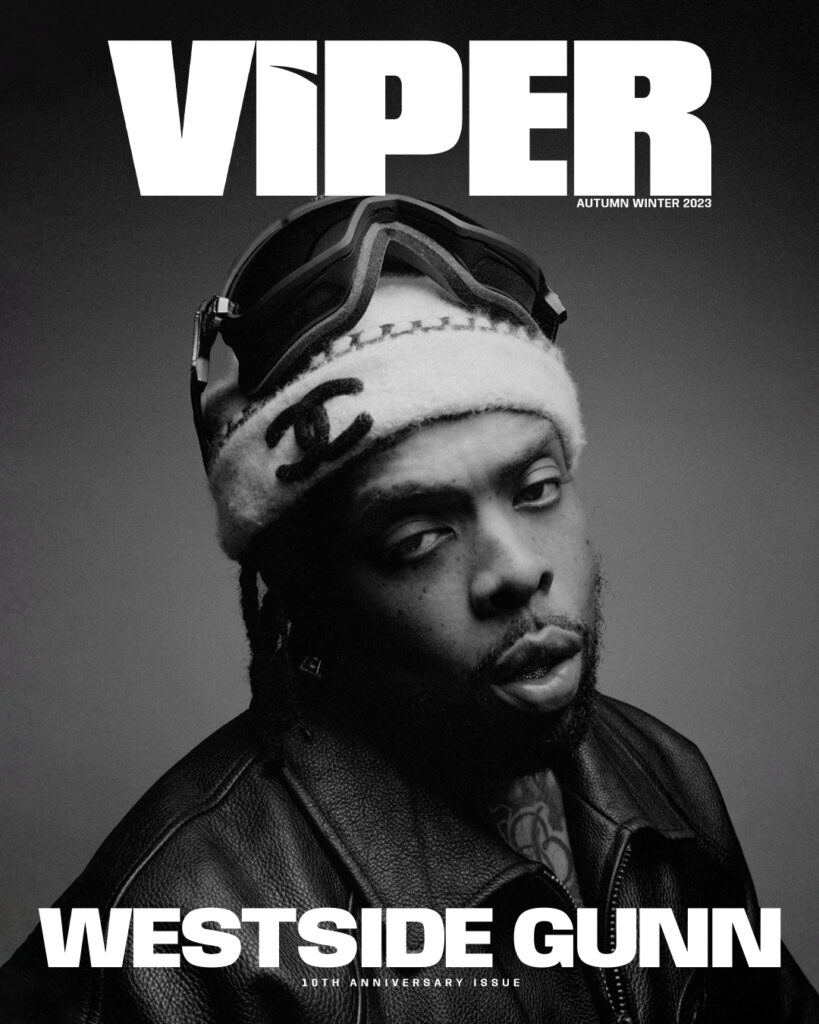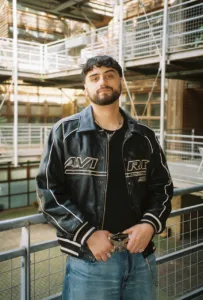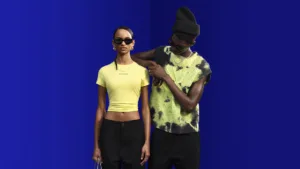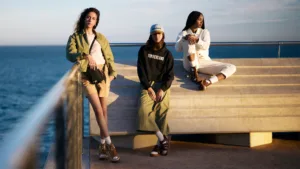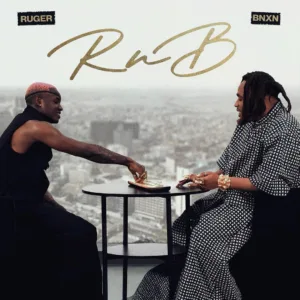Mick Jenkins is torn. He’s searching for a solution to stop white people using the N-word at his shows. “What’s been the biggest conflict I’ve faced in life? I have two actually.” he says adding, “Probably jail, I went to jail for 34 days. It was just a marijuana charge, apparently I missed a court date and I wasn’t granted the opportunity to prove myself until I was arrested.” This acted as a learning experience for the Chicago lyricist. “To this day, I’m kinda glad I went because it’s definitely a vital part of who I am and how I think today. If I could have avoided it, I definitely would have but now I’ve been through what I have, I’m grateful for it, it taught me a lot.”
But back to the current conflict. Mick explains that although the presence of white fans at his shows repeating his own use of the N word is understandable, that doesn’t mean it sits well with him. “It’s so weird to me. What a lot of people don’t understand, mostly white people, is that I get to feel weird. People feel like, ‘well you wrote it!’ But it’s like, “So?” Most shows are predominantly white so I’m in a room full of white people screaming “nigga” and I don’t know how to feel about it. I don’t know if I necessarily feel like, “Well you shouldn’t” because at the end of the day, I wrote it.”
It’s easy to see Jenkins’ dilemma, as a white fan opposed to the use of the N-word by white people in general, it frustrates me to see fans at shows feel like their ticket for the show doubles up as a pass to use loaded racial terminology. Especially when the artist himself is offended by the language in question, as Jenkins is. “The majority of people in the room are not reciting it maliciously at me, they’re reciting it to support me because they’re fans of the music. I have complete control over what they say because I write the lyrics. But that doesn’t take away that it is a white person screaming the word in my face and it makes me feel a way so it’s just a conflict for me right now. I don’t know what to do about it, I don’t know what to feel about it and it’s definitely a pressing issue.”
He’s open minded enough to see that many fans are uninformed as opposed to being malicious, “When you’re trying to make an appeal to an ignorant person, there’s so much of your argument that doesn’t matter because they’re unfamiliar. As right or wrong as I am, if you don’t have any knowledge of what I speak of, then my argument doesn’t hold the same weight to you as it does to Lily Mercer. So in the realm of actually trying to affect people, that has to be taken into account because they have to understand me. And if they don’t understand me then I’m losing them, so that puts me more in the realm of really not knowing what to do. Something like that is easier to do on a one-on-one basis as opposed to 850 people in this room waiting for me to perform ‘Jazz’.”

Growing up as a black man in America, his perspective on the country’s current climate is very relevant right now. He expresses disappointment towards many aspects of today’s culture, including the beauty industry, “We make so much money off the insecurity of women it’s crazy, so are we really out here to empower women? No. In every facet, this shit is engineered.” He thinks violence in the country is at a high and it doesn’t bode well for the future. “I think America is progressively getting more and more violent, in the home and the things we do outside of our home and the country. People are getting more desensitised to violence and I think that comes from the music, the movies, the pictures, everything that we use for marketing. I believe in the Bible, the King James version of the Bible, I’m a Christian. The world is not supposed to get better according to my beliefs, it’s supposed to get worse. Everything is becoming more evil, in Chicago, in America, in the world.”
Mick’s hometown of Chicago is often dubbed Chiraq, a tag that he looks at with disdain. “I don’t think it’s anything to brag about, I don’t think it’s cool that Chicago had more deaths at one time than Iraq. It’s not an accolade and we know that it has come from the music, that’s the promotion of the idea of Chiraq,” he says, explaining that the music and violence feed in to each other in a way that can not be entirely separated. “The hip hop in Chicago is probably the strongest supporter of that notion and it just puts a bad light on the type of music that’s coming from Chicago and that affects me personally. I’ve had people say crazy things to me about what they think Chicago is like and it’s not just like this war zone, which I think is what it’s perceived to be. I would like to knock that perception down and I think Chiraq only builds that perception.”
He frequently uses the word “fetish” to describe the media’s focus on Chicago’s violence. And it’s not just the newspapers that he’s opposed to, the music press can get it too. We speak on the spate of documentaries highlighting the city’s violent side, most notably World Star Hip Hop and Noisey. “That shit made me so upset, not just because they covered one side of Chicago hip hop and I’m talking about the Noisey one specifically. They covered one side of Chicago hip hop, and when they did cover SaveMoney, they only covered them getting Joey Purp out of jail.” Laughing in agreement, I concede that the World Star effort was somehow the most credible, even though they focused heavily on the drill scene and not the more optimistic music scenes the city has to offer.
Jenkins tells a story that Andrew Barber of Fake Shore Drive relayed to him about the moment that labels started reaching out to him about Chief Keef. When he told them that Chance the Rapper was also worth checking out, they displayed far less interest in picking up the artist with a positive message. “People often come at me as if I’m opposed to drill music and I’m not at all. [If] they gained the nickname Chiraq, there’s some level of violence going on, you understand what I’m saying? So this is what they’ve done with it and they’re telling their story and it’s valid because it’s true. So who are you to not give that any credit. It’s a double-edged sword because of what music promotes. It promotes that same violence but it is a valid story that needs to be told.”
His point is understandable, as he explains that the violence will exist regardless, but exploiting it is unnecessary. “I kinda put fault more on the media, for the people that cover it and the way they write about it and the way they depict the narrative of what goes on in Chicago because it’s not up to the artists; the artists don’t give themselves the national spotlight. No matter how talented you are, someone else brings you to the national spotlight and they’re more at fault than the artists themselves for pushing that idea of Chicago, its music and its community”
This is an extract from the Spring Summer 15 Issue of Viper Magazine. Read more from the magazine here. Buy physical and digital copies here.
Photos by Jude Appleby
Words by Lily Mercer
